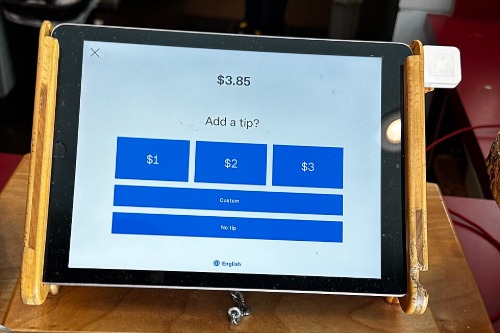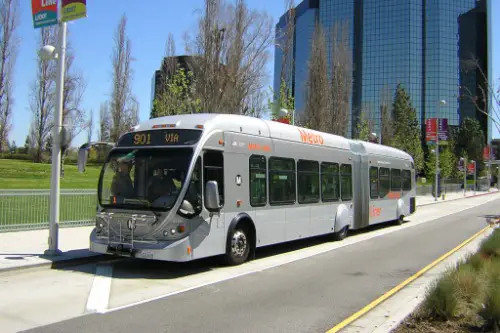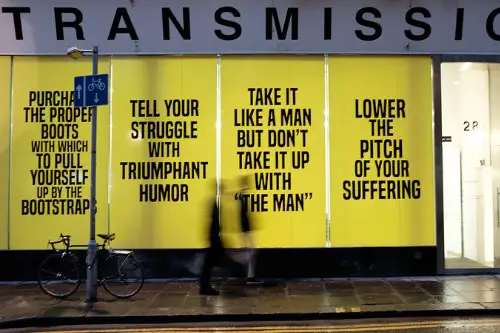1. Healthcare Tied to Employment

In most developed countries, losing your job doesn’t mean losing your access to a doctor. But in the U.S., health insurance is often linked directly to your employer, Dylan Scott of Vox explains. This setup makes life extra stressful during layoffs or career changes—not to mention it complicates starting your own business or freelancing. Millions stay in jobs they hate simply for the insurance.
This system didn’t evolve because it’s the best idea—it actually came from a World War II-era workaround to wage caps. Over time, it stuck, and now it feels normal even though it’s deeply flawed. Other wealthy nations have found ways to provide universal coverage without making it job-dependent. It’s worth asking if America should too.
2. Lack of Paid Family Leave

The U.S. is the only industrialized country that doesn’t guarantee paid parental leave, according to Krystin Arneson of the BBC. New moms often have to rush back to work just weeks after giving birth, and dads might not get any time off at all. Compare that to countries like Sweden, which offers up to 480 days of shared paid parental leave. That’s not just good for parents—it’s good for babies, bonding, and overall well-being.
Many employers offer nothing beyond the bare minimum required by the Family and Medical Leave Act (FMLA), which is unpaid. And that’s only available to certain workers. Paid family leave supports healthier families and stronger workforces. We might want to stop accepting this as “just how it is.”
3. Absurdly Expensive College Tuition

American college tuition has ballooned over the past few decades, far outpacing inflation and wage growth, according to Caroline Kitchener, Karen Yuan, and Amanda Ripley of The Atlantic. A four-year degree at a public university can now cost tens of thousands of dollars—even before factoring in housing and textbooks. This has left 43 million Americans carrying student loan debt, totaling over $1.7 trillion.
Other countries like Germany offer low-cost or even free higher education. Here, students often face the impossible choice between starting adult life in debt or skipping college entirely. If education is supposed to be the key to opportunity, maybe it shouldn’t come with a lifetime bill.
4. Normalizing Workaholism

The “hustle” mentality is worn like a badge of honor in American culture, Dr. Anna Katharina Schaffner of Psychology Today explains, but it’s costing people their health and happiness. Americans work more hours per year than most other developed nations and take significantly less vacation time. In fact, one in four U.S. workers doesn’t get any paid vacation days at all.
Meanwhile, countries with shorter workweeks often have higher productivity and better quality of life. Chronic burnout isn’t a sign of success—it’s a warning sign. It might be time to rethink the belief that constant grinding is the only path to fulfillment.
5. Food Portion Sizes That Are Way Too Big

It’s no secret that American portion sizes are massive—larger than what most nutritionists would recommend and often far bigger than servings in other countries. A “medium” drink in the U.S. could pass as a “large” or even “extra-large” elsewhere. These oversized portions encourage overeating, which contributes to rising obesity rates.
This isn’t just about personal choices—restaurants and fast-food chains often upsell larger meals for just a few cents more, incentivizing quantity over nutrition. And when that becomes the default, it skews our sense of what a normal meal looks like. Maybe we don’t need a side of fries that could feed a family of four.
6. Excessive Use of Credit Cards for Basic Needs

Credit cards in the U.S. aren’t just a convenience; for many, they’re a financial lifeline. Over 60% of Americans live paycheck to paycheck, and when an unexpected bill hits, it often ends up on a high-interest card. The average credit card interest rate in 2024 was around 20%, making it incredibly easy to spiral into long-term debt.
In some countries, using credit for everyday expenses is considered risky or irresponsible. Here, it’s normalized—and even encouraged—through rewards programs and aggressive marketing. But relying on credit to get by isn’t a sustainable financial model. It’s a red flag, not a lifestyle.
7. For-Profit Prisons

Only in America is incarceration seen as a business opportunity. Private prisons, which are paid by the government per inmate, have a financial incentive to keep people behind bars. Studies have shown that private facilities often cut corners on staffing, healthcare, and rehabilitation programs to boost profits.
This raises serious ethical concerns. Should anyone be profiting from the loss of someone’s freedom? Most other countries treat incarceration as a last resort and focus on rehabilitation. The U.S. could reconsider whether punishment should ever be profitable.
8. Normalizing Gun Violence

In many parts of America, hearing about a mass shooting barely registers anymore—it’s become that routine. The U.S. has more civilian-owned guns than people and far more gun deaths per capita than any other developed country. Schools now conduct active shooter drills as regularly as fire drills.
While other nations have taken bold legislative steps after similar tragedies, the U.S. largely hasn’t. This isn’t just about laws—it’s about what level of violence we’re willing to tolerate as “normal.” There’s nothing normal about fearing a trip to the grocery store or a classroom.
9. Tipping for Everything

Tipping used to be a way to show appreciation for good service, but now it’s expected in situations where no actual service is performed—like at self-checkout or pickup counters. The “suggested” tip amounts on card readers have also crept up, with 20% often being the default. For many workers, especially in restaurants, tips are essential just to make minimum wage.
The issue is that tipping shifts the burden of paying workers from businesses to customers. In most developed countries, service workers are paid a living wage and tipping is either optional or rare. Maybe it’s time to question whether this patchwork system is really fair to anyone.
10. Military Budget Over Everything

The U.S. spends more on its military than the next ten countries combined—over $800 billion annually as of recent years. Meanwhile, basic infrastructure like bridges, rail systems, and clean water access often go underfunded. It’s not about whether national defense is important—it’s about whether it should overshadow every other priority.
Other countries manage to maintain strong defense systems while still investing heavily in education, healthcare, and renewable energy. For many Americans, it’s normal to hear that we “can’t afford” certain public services. But maybe the issue isn’t money—it’s where we choose to spend it.
11. No Limits on Pharmaceutical Ads

The U.S. and New Zealand are the only two countries that allow direct-to-consumer pharmaceutical advertising. That’s why Americans see a steady stream of ads for medications they may not need, with voiceovers rattling off side effects like “risk of death” while someone jogs on a beach. It’s created a culture where patients sometimes pressure doctors into prescribing brand-name drugs.
This practice raises healthcare costs and can lead to over-medication. In most countries, drug information goes from professionals to professionals—not through TV commercials during football games. It might be worth asking whether our health decisions should be driven by ad agencies.
12. Inaccessible Public Transit

Outside of a few major cities, public transportation in the U.S. is sorely lacking. Many Americans can’t get to work, school, or medical appointments without a car. That makes transportation both a financial burden and a barrier to independence—especially for lower-income families and people with disabilities.
Meanwhile, countries like Japan and Germany offer affordable, clean, and reliable public transit systems that run like clockwork. Building robust transit isn’t just about convenience; it’s about equity and sustainability. America might want to get out of the driver’s seat and onto the train—literally.
13. Over-Policing of Minor Infractions

In the U.S., you can be arrested for things like loitering, jaywalking, or having a broken tail light—especially if you’re from a marginalized community. The criminal justice system often focuses resources on low-level infractions, leading to unnecessary arrests and life-altering records. This approach disproportionately affects communities of color.
Other countries take a more restorative or ticket-based approach to minor offenses. The idea isn’t to be soft on crime—it’s to be smart about what actually improves safety. We might want to question whether handcuffs should ever be the first resort.
14. Obsession with Individualism Over Community

“Pull yourself up by your bootstraps” is practically a national motto—but it overlooks the fact that not everyone has boots. American culture tends to romanticize individual success stories while ignoring systemic barriers. This mindset can make people feel ashamed for needing help, whether it’s food assistance or mental healthcare.
In many cultures, mutual support and social safety nets are seen as signs of a healthy society, not weakness. Community doesn’t mean dependency—it means recognizing we’re all better off when we support each other. Maybe we’ve leaned a bit too hard on “rugged” and forgotten the value of “together.”


